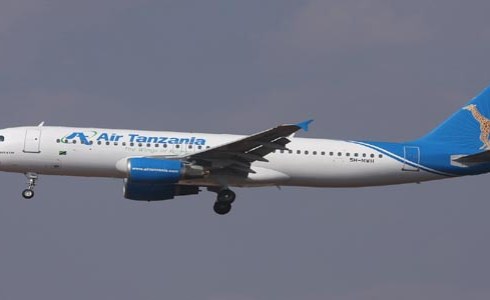
By Nuzulack Dausen
Tanzania has made remarkable strides in digital transformation over the last decade, becoming one of Africa’s leaders in applying digital technologies across various aspects of daily life. The Global System for Mobile Communications Association (GSMA), which represents the interests of mobile network operators worldwide, highlighted in a 2019 report that Tanzania was one of the most advanced mobile money markets in sub-Saharan Africa. Five years later, this transformation has grown further, with more people than ever using digital services across Tanzania.
Telecom subscriptions in Tanzania skyrocketed from 32 million in 2014 to 80.7 million by September 2024, resulting in a penetration rate of 111 percent by the end of 2023—meaning, on average, there are now more active SIM cards than people in the country. Leading the industry, Vodacom Tanzania Plc serves over 20 million subscribers, solidifying its position as the nation’s largest telecommunications network.
Internet subscription growth has been equally impressive, averaging 9.8 percent annually. With nearly 40 million internet subscribers by mid-2024, 99.6 percent of whom access the internet via mobile devices, Tanzania’s digital growth underscores the potential for digital technology to address pressing social and economic challenges.
Transforming lives through digital solutions
In rural Tanzania, where access to financial services was once limited, mobile money is now a vital resource, used for everything from bill payments to business transactions. Digital platforms like VodaBima provide insurance services to previously underserved populations. Education, too, has benefited as children, graduates, and adults can learn via platforms like E-Fahamu and Smart Darasa, helping bridge gaps where teaching resources are scarce.
The government has made strides in digitising services, from license issuance to online payments, reducing bureaucratic delays and increasing transparency. These technological changes are backed by innovative businesses providing digital solutions that help fuel economic growth by creating employment and opportunities for local entrepreneurs. This digital evolution stems from a blend of telecom, broadcasting, digital services, and regulatory policies fostered by government efforts and embraced by private stakeholders.
Political will and emerging technologies
While Tanzania has made progress, it could achieve even more with stronger political support for new technologies. Some initiatives, like implementing postcodes to enhance e-commerce, have faced delays due to limited political engagement. Although postcodes were first introduced in 2012, it took a decade for proper implementation, finally facilitated by President Samia Suluhu Hassan and key leaders in 2022 for the national census. Without such backing, essential projects risk delay.
Enhancing political understanding and support for emerging technologies through regular dialogue between technical experts and policymakers could lead to quicker adoption and smoother implementation of digital initiatives. This support would accelerate Tanzania’s digital growth and ensure that essential solutions are not delayed or overlooked due to a lack of political engagement.
Proactive, not reactive
Government proactiveness in digital transformation remains key. While agencies like the Business Registration and Licensing Agency (BRELA) and the Tanzania Communications Regulatory Authority (TCRA) have embraced digital efficiency, others resist digital systems that could challenge traditional workflows. Regulations should encourage rather than hinder technology use, but some still rely on outdated policies that struggle to address new digital realities.
For instance, the Copyright Society of Tanzania (Cosota) operates under the Copyright and Neighbouring Rights Act of 1999, with regulations from 2005. This framework does not adequately protect creative works from modern digital exploitation, such as artificial intelligence use. Updating this framework could better support artists and adapt to ongoing technological changes. When legal frameworks lag, government bodies can adopt interim guidelines based on existing data until comprehensive regulations are in place.
Overtaxing digital services hinders adoption
Taxation of digital services should be approached carefully. While broadening Tanzania’s tax base is essential, excessive taxation can discourage digital adoption. A key example was the 2021 mobile money levy, which saw mobile money revenue dip sharply before the government reduced some levies in response. Despite adjustments, revenue remains below its full potential, affecting telecoms, consumers, and digital entrepreneurs who rely on affordable electronic transactions.
The GSMA’s 2023 report showed that, despite efforts to lower fees, consumers used mobile money less following the levy’s introduction, reducing monthly mobile money revenue from Sh73 billion to Sh61 billion in mid-2021. Although the situation has since stabilised, revenue levels would likely be higher today if the levies had not disrupted digital transactions. Excessive taxation impacts the entire digital ecosystem, including sectors like e-commerce, which rely on affordable transaction costs to grow their user base and revenue.
Moving forward
Tanzania has the potential to lead digital transformation in Africa. To achieve this, government bodies, businesses, and other stakeholders must foster an environment that promotes digital technology while mitigating associated risks like cybercrime. Regulatory bodies should aim to be facilitators, not obstacles, while private companies should focus on creating sustainable, innovative solutions for the public good.
With increased collaboration, Tanzania can leverage digital technology to drive financial and social empowerment, improve governance, and grow the economy. As more Tanzanians access and utilise digital services, the impact on their lives and the country’s development will only increase.
Nuzulack Dausen is the Chief Executive Officer of Nukta Africa, a digital media and technology company in Tanzania. He is a seasoned journalist who covers business, economics, technology and data for local and international media














